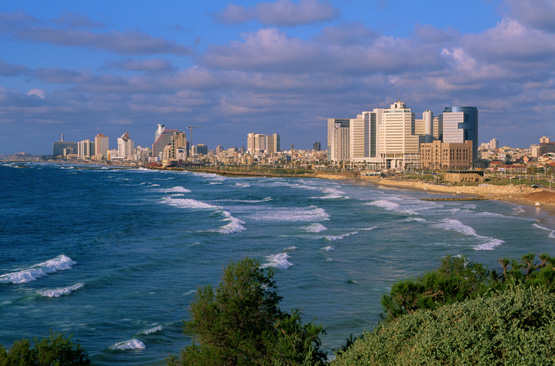
Opening Israel
By David Suissa – Jewish Journal
The buzzword these days for those in charge of improving Israel’s image is “beyond the conflict.” The idea is, because Israel’s image is so strongly defined by its conflict with the Palestinians, we must “change the conversation” to focus on areas where Israel will look better. This sounds smart and logical — but it’s a big mistake.
Luckily, there’s an easy way to fix the mistake.
As background, the “beyond the conflict” strategy got a big boost a few years ago when the Israeli Foreign Ministry, under its “Brand Israel” initiative, made it the centerpiece of its efforts. Its representatives took the show on the road and had some influence on Israel advocacy groups.
The most recent effort was a seminar sponsored by the World Zionist Organization (WZO) last month in New York for 50 representatives of 27 Jewish organizations from around the world. In an article in the Jerusalem Post, one of the organizers, David Breakstone, vice chairman of WZO and a member of the Board of Governors of the Jewish Agency, explained the rationale for going beyond the conflict:
“The vast majority of those out there with whom we want to make friends are completely disinterested in our conflict and even less interested in our narrative of it,” he wrote. “If we are to engage them, we first have to worry about making ourselves attractive to them.”
How does Israel do that? Not a problem, he says. It has “plenty to flaunt.” It just has to focus on areas such as environmentalism, social activism, cultural renaissance, scientific innovation, cutting-edge technology, medical research, alternative energy and so on.
So, if this approach sounds so smart and logical, why do I think it’s a big mistake?
Well, for one thing, because it makes Israel look sneaky — as if it’s trying to cover something up.
The vast majority of people might be “disinterested” and even bored with the Israeli-Palestinian conflict, but the conflict represents most of what they know and hear about Israel. Does anyone really think a rosy and peachy message about the “other Israel” will make the people forget the “dark” Israel they keep hearing about — the one accused of oppressing Palestinians and the object of international boycotts and repeated condemnations at the United Nations?
Especially with the Palestinian bid for statehood at the U.N. General Assembly coming up on Sept. 20, the conflict will be even more newsworthy, so it is foolish for Israel message-makers to ignore difficult subjects — no matter how seductive and tempting that option looks to many of us.
More than anything, what Israel PR needs to do is frame the Israeli story in such a way that everything about Israel — good and bad — can be seen in a more sympathetic and understanding light.
The best way to do this is to play to Israel’s strength and flaunt one powerful idea: “Open.”
Israel is an open society. It has nothing to hide. It is a nation open to argument, criticism and change. It convicts its presidents when they are found guilty of sexual misconduct. It is open to hundreds of NGOs who fight for the rights of minorities. It has opened its doors to immigrants from more than 100 countries. It has opened Jerusalem to all religions and to lively gay parades, and protects the rights of 400,000 people to demonstrate openly for social justice.
Israel is the people of the open book. If you hear so much negative stuff about Israel in the media, one reason is that its messy and noisy society is wide open for everyone to see and scrutinize. In a part of the world where freedom of speech is constricted and so much information is murky, Israel is the little country with the biggest mouth and the most daylight.
This openness helps it move forward. It is open for innovation and for business with the world; to art, culture, spiritual adventures and a great nightlife; it is open to help the world whenever a disaster strikes, and to seek scientific solutions to humanity’s toughest problems; it is open to exploring other countries and to sharing its ideas.
And, yes, Israel is open to seeking peace and resolving conflicts. It has succeeded with Egypt and Jordan, but failed with its Palestinian neighbors. It has made real offers for peace that have been rejected. It evacuated Gaza, but that failed. Despite repeated failures, it remains open for peace and is ready to resume negotiations immediately.
Sure, Israel makes plenty of mistakes, and because of its open society, it never stops hearing about them. That might not make it more attractive, but it makes it more authentic. And it helps the country progress.
In short, what I’m suggesting is that Israel’s PR should be as frank and open as its society. People are not stupid; they can smell our PR tricks. If Israel wants to be effective and make a real human impact, it should launch an anti-PR “Open Israel” campaign that could show the world it has nothing to hide, including its mistakes.
Through social networks and YouTube films, as well as through engaging media spokespeople, this campaign should celebrate the extraordinary ways that Israel is an open society — for better and for worse. Instead of being “beyond the conflict,” the campaign would be “beyond PR.”
That would frame the Israeli story in an honest and compelling way, and it would have the added benefit of being true.

